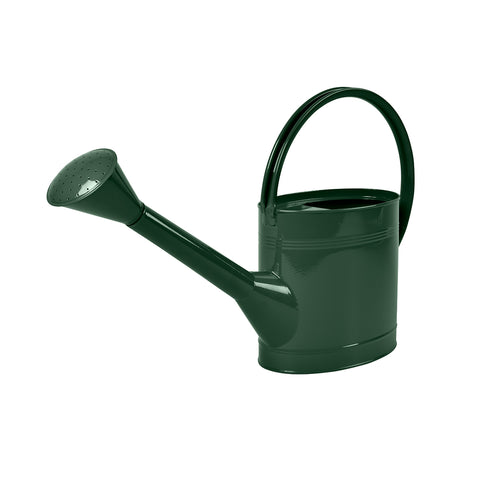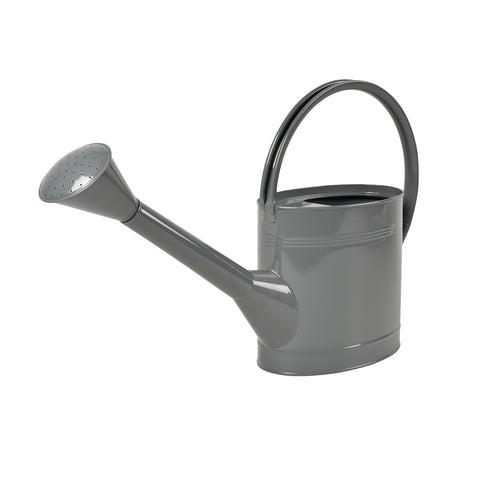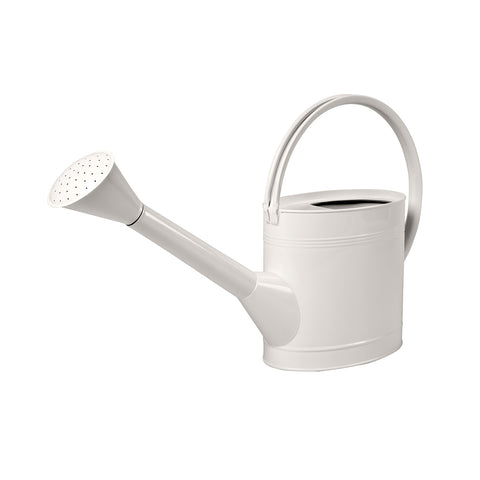 As spring starts to peek through, we gardeners are full of plans and are itching to get started on making this the best season yet. Whether it’s battling the slugs, improving our soil or protecting our prized plants from weather extremes, we’re determined to give our 2019 garden the best possible chance of success.
As spring starts to peek through, we gardeners are full of plans and are itching to get started on making this the best season yet. Whether it’s battling the slugs, improving our soil or protecting our prized plants from weather extremes, we’re determined to give our 2019 garden the best possible chance of success.
If you’re not starting the season with rich, dark, crumbly soil, packed with nutrients and beneficial bacteria, one of the easiest ways to give your plants the best chance of success is to use an organic fertilizer. We caught up with our friends at gardening solutions and fertilizer specialist Envii to get the low-down on fertilizer facts.
What are fertilizers?
Fertilizers are substances that are used to improve plant fertility, health and development. In simple terms, whether they are chemical or organic, fertilizers are plant food.
Are they essential?
The soil in the ground already contains the nutrients necessary for plants to grow. That’s the reason growers will inevitably find uninvited weeds growing in the garden. However, that begs the question, are plant fertilizers essential?
However, in many ways, this question is like asking if nutrients are essential; of course they are. Nutrients are essential for healthy plant growth, especially when growing crops, if gardeners want to achieve a great fruit or vegetable harvest.
Despite the fact some nutrients are readily available, not all plants are able to access them. Depending on the medium and growing space available, some nutrients won’t naturally be present in the soil. This is where fertilizers play an important role in supporting plants, by providing additional nutrients. Gardeners can step in with fertilizer to replenish plants to encourage plant development, which otherwise might be stunted when soil structures alone don’t provide enough nutrients in sufficient variety or quantity.

Plant fertilizers typically contain three main elements essential for a plant’s ‘diet’. These are Nitrogen (N), Phosphorus (P) and Potassium (K), typically known as NPK. Found in varying proportions, they form the foundation of most organic and inorganic fertilizers. Plants also require other elements, but at very low levels. These are known as trace elements and are usually available in adequate amounts in most soil.
Each of the main elements serves a specific purpose. Nitrogen (N) is essential for chlorophyll production during photosynthesis. Hence, Nitrogen stimulates healthy foliage growth in plants. Phosphorus (P) promotes both structural strength and flower/fruit production by boosting plant root growth. Finally, Potassium (K) acts in a similar way to a bio-stimulant, improving the plant’s nutrient digestion process. Improved access and consumption of nutrients often results in better size, shape and colour of crops. As a result, Potassium is sometimes referred to as the ‘quality element’ of the three main constituent parts of fertilizers.
General and specific-purpose fertilizers
Outside of the main elements, fertilizers can be categorised into either general-purpose or specific-purpose fertilizers. Most general-purpose fertilizers contain equal proportions of NPK, or a slightly higher amount of Nitrogen. This formulation is suitable for most crops, flowers and lawns because it meets all the needs of plants throughout their growing season.
On the other hand, specific-purpose fertilizers, depending on a plant’s needs, contain vastly higher proportions of one element compared with the others. Some specific-purpose fertilizers focus on active growth and might have an NPK ratio of 15-6-5, which would encourage lush green growth. Other specific-purpose fertilizers stimulate root growth and so will have higher proportions of Phosphorus and an NPK ratio such as 10-20-10. Some plants require nutrients so specific, they require their own dedicated fertilizers with NPK ratios that meet their specific plant needs.
 Liquid or solid fertilizer?
Liquid or solid fertilizer?
Fertilizers are available in solid or liquid form. Generally speaking, liquid fertilizers provide faster results than solid fertilizers, because liquid fertilizers come in a form naturally consumable to plants. Solid fertilizers first need to dissolve and break down before the plant can access them, and it can be difficult to know how quickly solid fertilizers release nutrients and when it’s time to re-apply.
Envii recommends using liquid fertilizers, since not only are they fast acting, but they also make it easier to maintain a plant feeding routine. They’re suitable for most growing media, and most liquid fertilizers only need to be applied every 10 to 14 days, either through watering or by foliar application. Fast-growing crops such as beans, radishes, tomatoes and more benefit most from a regular feed with a liquid fertilizer.
 Three essential fertilizer tips
Three essential fertilizer tips
- If growers don’t feed their plants with fertilizers, they can’t expect great results. Soil is inevitably depleted, the more plant growth it sustains; this is especially true for the fruitful growth required when growing edibles.
- Many gardeners (and cooks!) swear that organically grown crops taste better, and inorganic fertilizers undoubtedly have environmental impact. In contrast, organic fertilizers work with and support natural biological processes, by boosting fungal and bacterial soil activity.
- It’s common for gardeners to over-fertilise plants. Remember, more does not mean better. Always stick to the correct dosage instructions. Overtreating plants or their soil can cause loss of water, nutrients and wilting.
So, armed with this expert knowledge, we wish you a happy a successful growing season ahead!




